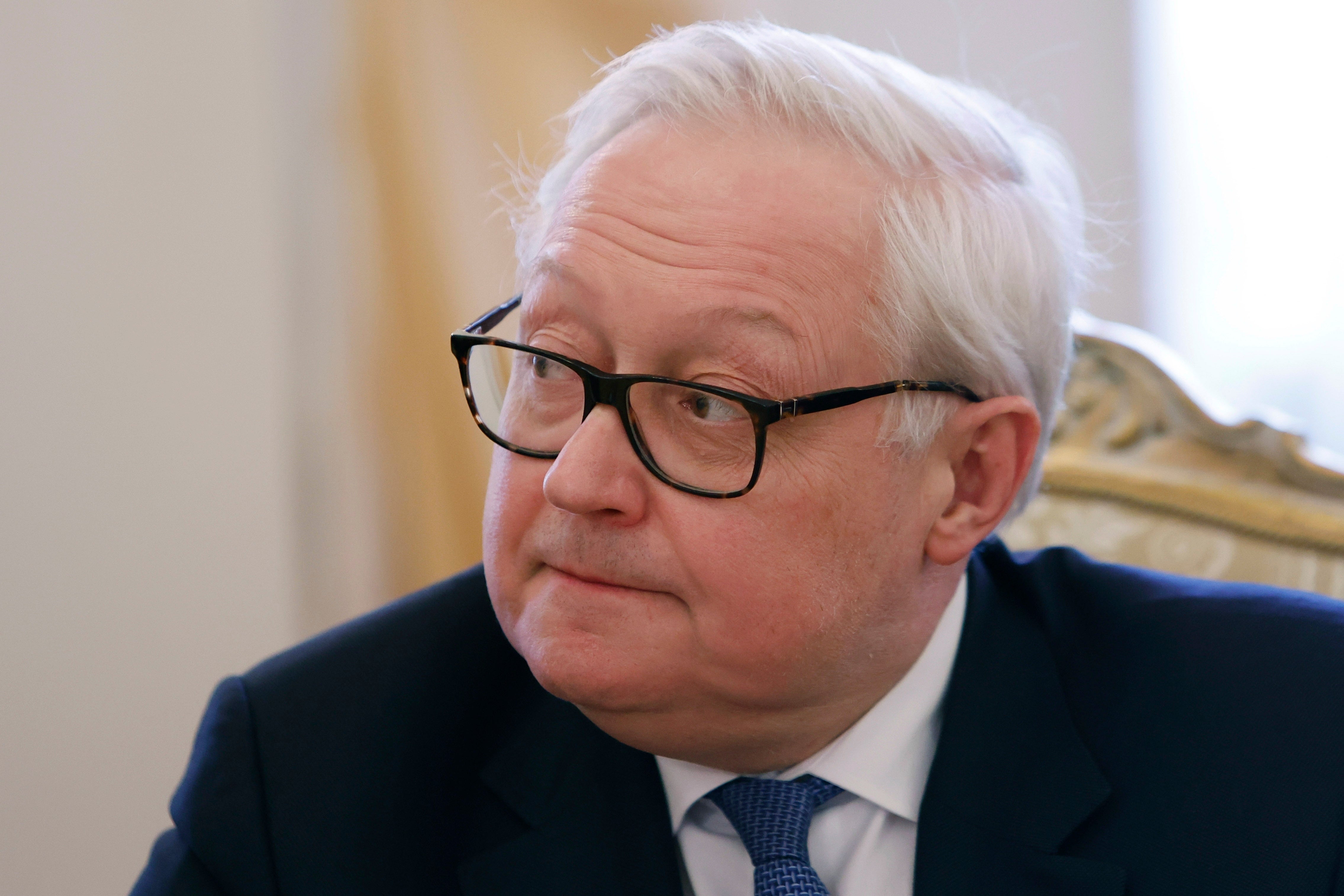Russia keeps door open on future talks about nuclear pact
A senior Russian diplomat says Moscow may continue to exchange information with the United States on issues related to their nuclear forces even after the suspension of the last remaining arms control pact between the two countries

Your support helps us to tell the story
From reproductive rights to climate change to Big Tech, The Independent is on the ground when the story is developing. Whether it's investigating the financials of Elon Musk's pro-Trump PAC or producing our latest documentary, 'The A Word', which shines a light on the American women fighting for reproductive rights, we know how important it is to parse out the facts from the messaging.
At such a critical moment in US history, we need reporters on the ground. Your donation allows us to keep sending journalists to speak to both sides of the story.
The Independent is trusted by Americans across the entire political spectrum. And unlike many other quality news outlets, we choose not to lock Americans out of our reporting and analysis with paywalls. We believe quality journalism should be available to everyone, paid for by those who can afford it.
Your support makes all the difference.Russia may continue to exchange information with the United States on issues related to their nuclear forces even after Moscow suspended its participation in the last remaining arms control pact between the two countries, a senior Russian diplomat said Wednesday.
Deputy Foreign Minister Sergei Ryabkov said that Russia has given the U.S. Embassy formal notice about the New START treaty's suspension after Russian President Vladimir Putin signed the decision into law on Tuesday.
Ryabkov noted that Russia and the U.S. had confidential discussions on matters related to the pact in recent days. He said Moscow could remain open to such exchanges in the future.
“We will communicate and exchange information when necessary,” Ryabkov said in comments carried by Russian news agencies.
The Russian diplomat emphasized that Russia will not end the suspension “at least until our American counterparts show readiness to abandon their hostile policy toward Russia, primarily concerning the developments in Ukraine.”
Putin announced the halt in Moscow's participation in New START in his state-of-the-nation address last week. He argued that Moscow can’t accept U.S. inspections of Russian nuclear sites envisaged by the pact when Washington and its NATO allies have openly declared Russia’s defeat in Ukraine as their goal.
Putin said Moscow was not withdrawing from the pact altogether, and the Russian Foreign Ministry said the country would respect the caps on nuclear weapons set under the treaty and keep notifying the U.S. about test launches of ballistic missiles.
Bonnie Jenkins, the U.S. undersecretary of state for arms control, said Monday that while the U.S. government has not fully assessed the consequences of Putin's decision, “we’re not seeing any evidence that Russia is in noncompliance.”
“We remain ready to work assertively with Russia to fully implement the New START treaty,” Jenkins said.
The New START treaty, which then-presidents Barack Obama and Dmitry Medvedev signed in 2010, limits each country to no more than 1,550 deployed nuclear warheads and 700 deployed missiles and bombers. The agreement envisages sweeping on-site inspections to verify compliance.
The inspections have been dormant since 2020 because of the COVID-19 pandemic. Discussions on resuming them were supposed to have taken place in November 2022, but Russia abruptly called them off.
Ryabkov argued Wednesday that Washington offered “too little too late” to come to an agreement on inspections and solve other differences between the countries regarding the pact's implementation.